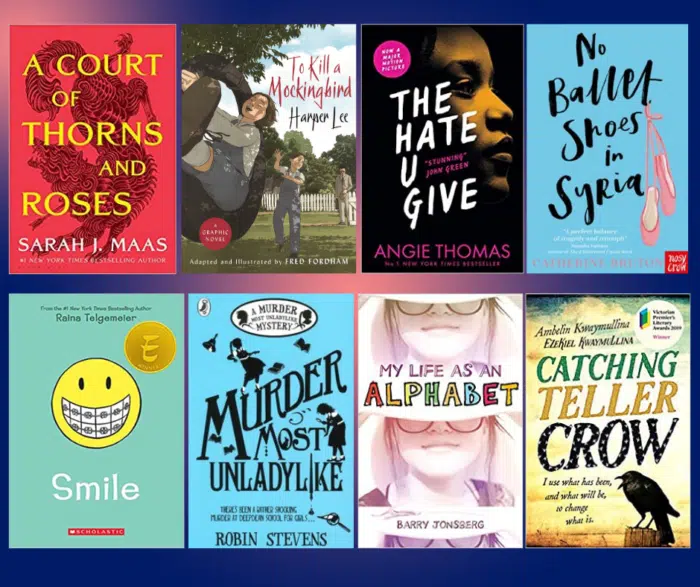Reading for pleasure improves academic achievement.
The correlation between reading for pleasure and academic achievement is strong and recent research has bolstered the connection. The British Cohort Study has followed the lives of 17 000 British children born in one week in 1970 across England, Wales, and Scotland. When this group was 16 years old, the researchers tested children who had demonstrated similar academic abilities at 5 and 10 years old. Those who had read often at age 10 and had continued to read more than once a week at 16 years old had higher test results in vocabulary, spelling and maths. Whilst maths seems counter intuitive, reading exposed students to new ideas, encouraged them to explore and understand new information and concepts, and to learn independently, which supported their schoolwork (Institute of Education, 2015). Similarly, research across 31 societies demonstrated a strong link between having books at home, giving more adolescent exposure to reading, and improved literacy, numeracy, and ICT skills as adults. Dr Joanna Sikora, the lead researcher, said that these beneficial effects lasted over time (Sikora, Evans and Kelley, 2019).
Stories, reading, bibliotherapy and social benefits.
Telling stories is a fundamental part of being human and stories have helped us understand the world and ourselves for many millennia. The power of reading to inform, amuse, comfort, soothe and provide material for reflection has long been recognised. Whilst oral story telling was a group activity, reading is also social, with readers sharing books and discussing the stories and ideas they have enjoyed. Reading enables us all to explore the world beyond our communities and to reflect on our own lives. In recent years, this social interaction has developed online with sites such as Good Reads and various Instagram reading influencers creating new, wider communities of readers spanning the globe. More formally, bibliotherapy as a specific field has been used to help support people with illness since the nineteenth century, but its benefits are recognised outside of the medical sphere. Over the lockdowns of last year, the State Library of Victoria developed a series of bibliotherapy podcasts where listeners were encouraged to use poetry and short stories to reflect on their circumstances (State Library of Victoria, 2020).
Reading affords adolescents the opportunity to safely explore new ideas and difficult topics. In reading about other people, teenagers can develop empathy for those whose lives are very different from their own. Genres such as fantasy and dystopia allow them to see people their own age as powerful in challenging and dangerous worlds. In following the fictional and non-fictional experiences and emotions of others, young people can learn about decision making and find role models for their lives. They can explore ethical conundrums and feel validated in their own experiences. Reading for pleasure becomes a vicarious experience and supports learning about the world. Young Adult (YA) literature has exploded as a genre over the past two decades and many authors specialise in creating fiction for adolescents across a range of genres. These works are created by authors who respect their readers’ desire to explore the world but recognise the need to be accessible to teen readers (Wakeman, 2019). Carefully curated collections of Young Adult fiction, biographies and graphic novels allow students to explore a range of issues in an age-appropriate way.
Game of Loans
The Game of Loans reading competition for Years7-9 aims to leverage the social and wellbeing benefits of reading for pleasure. Having the program as part of the Wellbeing classes will emphasise this aspect, rather than running it in English where reading is often seen as work. Students will have time to read, recommend and discuss books with their teachers in their Wellbeing classes. The Wellbeing teachers will be part of the class team for the term, being part of the reading community. These group conversations should be relaxed and social with the readers being equals in the space. Other teachers can be co-opted by the classes to read for them, thus spreading the sense of the reading community across the school. Library staff will verify the reading through reviews posted on the Oliver LMS, replicating online reading communities like Good Reads, but within the online school community.
Unlike the Premiers Reading Challenge, there is no set list of books or target number. The students are encouraged to read for pleasure and follow their own tastes and interests, rather than selecting titles from a list. This is to underline the personal nature of reading and to encourage the idea that reading is fun. Ultimately, if students are encouraged to develop a habit of reading for pleasure it will be a success. Without a specified target, students can feel comfortable reading at their own pace and as they are reading as a team, every book counts. The student who reads one book, whereas before they would have read none, might be the difference between first and second place for their class. In the Game of Loans, a rising tide lifts all boats. All students enjoy the prize when their class wins. There will also be specific prizes for those who read a lot, or at a very high level and prizes for students nominated by the wellbeing teachers.
Mrs Penny Roberts
Director of Library and Research
References
Institute of Education (2015). “Reading for Pleasure: Research impact case study. March 2015”. Retrieved, 25 March 2021, from:
https://cls.ucl.ac.uk/wp-content/uploads/2017/06/Readingforpleasurestoppress.pdf
Sikora, J., Evans, M. D. R. and Kelley, J. (2019). “Scholarly culture: How books in adolescence enhance adult literacy, numeracy and technology skills in 31 societies.” In Social Science Research, 77 (2019), pp.1-15.
State Library of Victoria (2020). Bibliotherapy (podcast series). Retrieved 11/3/2021 from:
https://podcasts.apple.com/au/podcast/bibliotherapy-with-state-library-victoria/id1529834553
Sullivan, A. (2013). “Reading for fun improves children’s brains, study confirms.” In The Guardian. Retrieved, 28 October 2019
Wakeman, J. (2019) “Developmental Bibliotherapy in young adult fiction: Why teens need books now more than ever.” National Education Summit. Retrieved, 29 October 2019, from:
https://nationaleducationsummit.com.au/new-blog/developmental-bibliotherapy


